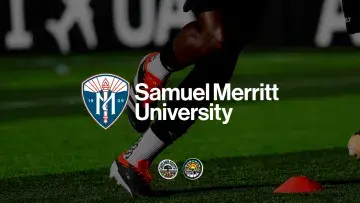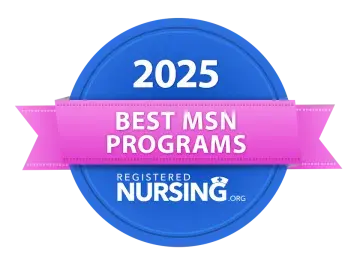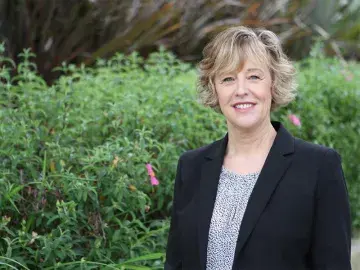SMU Disability Director’s Long History of Advocacy
Elisa Laird-Metke, director of Samuel Merritt University’s Disability Resource Center, says technology is the new frontier for ensuring physically disabled people have the same opportunities as everyone else.
In the past, disability rights advocates like Laird-Metke fought for wheelchair ramps and elevators in educational facilities. Now, she says, the focus is on providing specialized keyboards, computer screen readers, and other assistive technology so people with visual, hearing and other disabilities can better access web content.
Since taking the  helm of the Disability Resource Center last August, Laird-Metke has developed campus guidelines on how to make the University’s web pages compatible with disability access software and pushed to insert captioning into SMU videos. In addition to benefiting current students and complying with the law, she says creating web content that is accessible to those with disabilities is critical for recruitment efforts.
helm of the Disability Resource Center last August, Laird-Metke has developed campus guidelines on how to make the University’s web pages compatible with disability access software and pushed to insert captioning into SMU videos. In addition to benefiting current students and complying with the law, she says creating web content that is accessible to those with disabilities is critical for recruitment efforts.
“Attracting more students with disabilities will lead to more positive health outcomes for disabled people in the general population because having healthcare providers with similar lived experiences helps them better understand their patients’ needs,” says Laird-Metke.
The work of the Disability Resource Center is part of the University’s mission of “serving the underserved,” according to Laird-Metke. That’s why she is working to include students with disabilities in SMU’s diversity efforts.
Laird-Metke says nearly one in five Americans identify as having a disability. Like other minority groups, people with disabilities face significant barriers to receiving care and have greater unmet healthcare needs, she says. And the number of graduate health science students with disabilities in the U.S. remains low.
“Elisa is a forward thinker, not just about compliance but in how to make learning more accessible to everyone,” says Craig Elliott, Ph.D., SMU’s assistant vice president of Enrollment and Student Services.
Laird-Metke traces the roots of her career as a disability rights advocate to her freshman year in college when she immersed herself in learning sign language to better communicate with her deaf friends.
After serving as an interpreter and services coordinator for deaf students at two North Carolina universities, Laird-Metke decided to become a lawyer.
“I decided I could advocate for students in a more productive way by going to law school and learning more about disability law,” said Laird-Metke, who moved to San Francisco to attend Golden Gate University School of Law.
Following graduation, Laird-Metke spent several years working on class-action lawsuits that won improved access for physically disabled students in San Francisco public schools and at other educational institutions as required by the Americans with Disabilities Act and other civil rights legislation.
Weary of 80-hour weeks at a San Francisco law firm, Laird-Metke became a staff attorney at an Oakland nonprofit working on public health issues such as drafting model legislation for cities and counties to curtail tobacco smoking.
Eventually, she followed her heart back to disability advocacy in higher education, which led her to Samuel Merritt University.
More than 50 SMU students identify themselves as disabled, according to Laird-Metke. They include students living with hearing loss, attention-deficit disorder, learning disabilities and mental health issues such as bipolar disorder, major depression, and post-traumatic stress disorder.
“Students are more willing to self identify and gain support with less stigma as compared to 10 to 20 years ago,” she says.
Part of Laird-Metke’s job is to make sure disabled students receive appropriate accommodations depending on their needs. Those adaptations can include extra time or a quiet room for taking exams, as well as allowing students with visual processing disorders to write answers multiple-choice questions with letters rather than filling in the bubbles. She also works closely with faculty to make sure their students are getting what they need in the classroom.
“It’s my job to make sure the playing field is level,” Laird-Metke says. “I want to make disability access part of the fabric of the University.”


